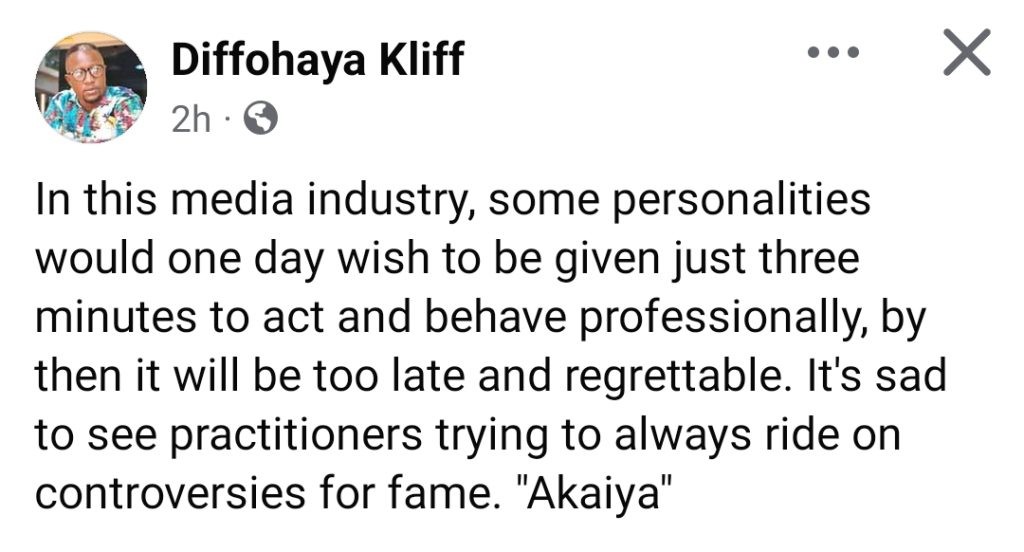In a bold and thought-provoking social media post, Diffohaya, one of the most revered radio and TV personalities, has thrown down the gauntlet to his peers in the media industry. His statement, which hints at the dangers of relying on controversy to sustain one’s career, has sparked heated debates among both fans and fellow practitioners. Diffohaya’s cryptic warning, “some personalities would one day wish to be given just three minutes to act and behave professionally, by then it will be too late and regrettable,” underscores a harsh reality that many in the industry may be unwilling to face: the fleeting nature of fame built on scandal.
The rise of “controversy culture” in the media, where practitioners often engage in sensationalism to remain relevant, has become a troubling trend. Difahiya’s pointed remark, “Akaiya,” which translates to “a pity,” serves as a stark reminder of the consequences of such behavior. While controversy might generate immediate attention, it seldom leads to long-term respect or career stability. Instead, it can tarnish one’s reputation and, as Difahiya suggests, leave individuals regretting their choices when the public’s favor inevitably shifts.

Difahiya’s post has undoubtedly rattled some cages, exposing the fragile egos and insecurities of those who might see themselves reflected in his words. It raises a crucial question for media practitioners: will they heed his warning and strive for professionalism, or will they continue down a path that promises fame today but leaves them with nothing but regrets tomorrow? As the conversation unfolds, it is clear that Difahiya has sparked a necessary, albeit uncomfortable, discussion about the ethics and longevity of a career built on controversy.










